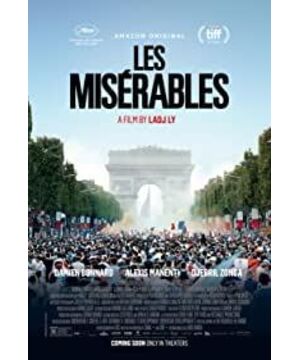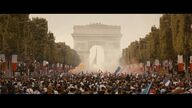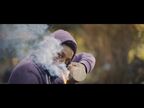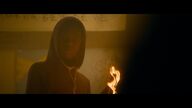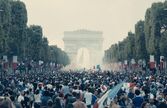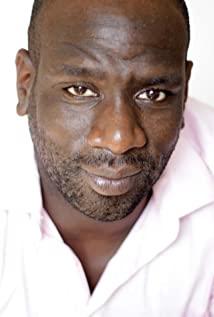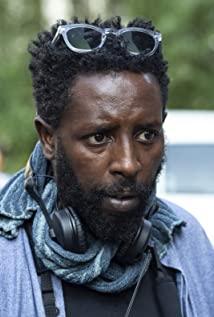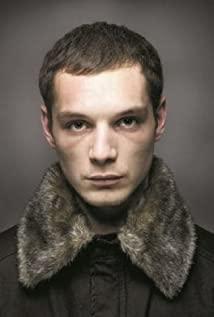This is a place where there are no people shining with kindness except the strangers. This is the magnification and epitome of the racial contradictions in France.
Raj Lee’s debut work reminds people of Spike Lee’s "Being What You Should Be". It is also the problem of racial contradictions in the black community, and it is also a spiral narrative of violence that grows from weaker to stronger to uncontrollable. It also examines everyone's objective perspective, but it does have a little more "miserable world" artistic conception.
After winning the World Cup in France in 18 years, everyone flocked to the streets, regardless of skin color or age, singing Marseilles, waving tricolor flags and cheering on the Champs Elysées in front of the Arc de Triomphe. At the moment, they are all uniting the French, but is that really the case? The director put a big question mark on this question, and "Les misérables" came to the head of the celebrating French.
The little lion is a fuse that detonated the originally perilous powder keg community. The role set by the director in the entire incident of nonsensical out-of-control is very intriguing. He did not bring us into the perspective of a certain person to observe the world and consider issues, but let the audience examine the entire event as a completely bystander, while holding the camera tape. The audio-visual feast that came has made us immersive.
Issa's behavior of stealing chickens and dogs seems to make it impossible for people to sympathize with him when he is being bullied by the gang and the police are hurt and threatened. Even if he has a trace of pity when he is sobbing, he will be obliterated by the final violent revenge. trace. The tears at this time are not the children's powerlessness to face injustice, but a hotbed of hatred.
In the role of the police, we can definitely feel that the director commendably and deliberately regards the protagonists of the movie as people with independent images and personalities, rather than symbols. As a white policeman, Chris discriminates against blacks and enforces the law violently. After the accident, he focuses on the reputation gains and losses brought by drones instead of treating children. He seems to have become a part of the brewers of The Miserable World. Similarly, Gwada, a black police officer, has similar violent and sympathetic characteristics to Chris. But when Chris returned home, he became the husband loved by his wife and the patron saint of the two precious daughters; Gwada returned home, he became a fragile child in front of his mother, perhaps because of his inner self-blame. The injuries of the children of the descendants of immigrants plunged him into deep pain. After the black policeman said "Putain!" Was it regret, fear or pure anger? And how does he deal with the magnetic card with his own crimes? The film did not give an answer, but gave a vague direction when he returned home. In the end, the police changed from the perpetrator to the victim, which was embarrassing.
As a stranger, Ruiz is a representative of conscience (although he also acted to cover up Gwada's dereliction of duty). He didn't make dirty jokes, stopped the violent law enforcement by white policemen, bought medicine for injured children, threatened circus bosses to shoot lions, and so on. But perhaps because of his reticence or lack of courage, his arrival did not change anything, but was pushed to the edge of the cliff by the whole environment. When he took out his gun and aimed at Issa, the irony of the film reached its peak. People with conscience were first pushed to the brink of death and forced to confront Issa, whom he had saved. Finally, whether conscience will flash in Issa's heart, the director replied with omission.
The most unique thing in the movie is its perspective in my opinion. The objective/god perspective has something that can be embodied-drones. Of course, the little boy with glasses is also portrayed as a neutral image of voyeurism and police abuse. Coincidentally, in the absence of drones, he still became an observer of the violence through the cat's eye in the final melee. From the drone to the cat's eye, the boy's vision has changed, but the perspective is not interrupted, still with the audience. Looking down at the camera many times, let us re-examine the people and the city, while the sunset under the drone's perspective in the middle represents the weak side and the surviving kindness in everyone's heart. The battle in the corridor destroyed all these beautiful hopes.
In addition, another very unique plot setting is a group of children playing in the water sipping water into the car before the riot. From squirt gun to Molotov cocktail, from smiling face to angry face, how similar are the two types of "violence"? Is violent confrontation an inherent characteristic or the evil result of a dirty social environment? The director responded with the words in "Les Miserables" as the end of the film. "There have never been bad weeds or bad people, only bad growers." It is no longer the France of Mr. Hugo's time, but his words are still deafening. What is the use of the 2005 riots? Undoubtedly, the growers have missed again, but it is the people themselves who are bleeding.
View more about Les Misérables reviews


